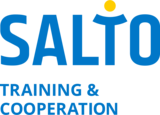Competences required for high-quality European level
Arnold, R. (1997): Qualität durch Professionalität – zur Utilität und Zweckfreiheit in der Qualität betrieblicher Weiterbildung. In: Arnold, R. (Ed.) Qualitätssicherung in der Erwachsenenbildung. Opladen
Chisholm, L./Fennes, H.(2008, to be published): Lernen in der zweiten Moderne: neue Zusammenhänge denken und erkennen. In Reisinger, P. and Schratz, M. (eds.) Schule im Umbruch. Innsbruck: Innsbruck University Press
Chisholm, Lynne (2008, to be published): Recontextualising learning in second modernity. In: Bendit, René & Hahn, Marina (Eds.) (2008): Youth Transitions: Processes of Social Inclusion and Patterns of Vulnerability in a Global World. Contributions to education - employment, participation, democratic citizenship and youth cultures in different world regions. Leverkusen: Verlag Barbara Budrich
Chisholm, L./Hoskins, B. with Glahn, Ch. (eds.) (2005): Trading Up: potential and performance in non-formal learning. Strasbourg: Council of Europe Publishing (accessed 25.01.2008)
Colley, H./Hodkinson, P./Malcolm, J. (2002): Non-formal learning: mapping the conceptual terrain. University of Leeds. (accessed 10.01.2008)
Colley, H./Hodkinson, P./Malcolm, J. (2003): Informality and Formality in Learning. London: Learning and Skills Research Centre (accessed 10.01.2008).
Council of Europe (2007): Quality standards in education and training activities of the Directorate of Youth and Sport of the Council of Europe (DJS/G (2007) 12 E). Strasbourg (accessed 28.01.2009)
Council of Europe (2005): Advanced Training for Trainers in Europe. Volume 1 – Curriculum Description. Strasbourg: Council of Europe Publishing (accessed 25.01.2008)
Council of Europe (2001): Symposium on non-formal education, Strasbourg (EYC), 13-15 October 2000. Report Part 1 (Sympo/Edu (2000)rap.) Strasbourg (accessed 31.03.2008)
Council of Europe (2001): Symposium on non-formal education, Strasbourg (EYC), 13-15 October 2000. Report Part 2 (Sympo/Edu (2000)rap.) Strasbourg (accessed 31.03.2008)
Council of the European Union (1999): Resolution of the Council and the Ministers of Youth meeting with the Council of February 1999 on youth participation (19999/C 42/01) (accessed 10.01.2008)
Du Bois-Reymond, M. (2004): Youth – Learning – Europe. Ménage à trois? In: Young: Nordic Journal of Youth Research 12, 3, pp. 187-204.
Du Bois-Reymond, M. (2003): Study on the links between formal and non-formal education. Strasbourg: Council of Europe, Directorate of Youth and Sport (accessed 25.01.2008)
European Association for Quality Assurance in Higher Education (2005): Standards and Guidelines for Quality Assurance in the European Higher Education Area. Helsinki (accessed 17.03.2008)
European Commission and Council of Europe (2004): Working paper: Pathways towards validation and recognition of education, training and learning in the youth field. Brussels and Strasbourg (accessed 18.03.2008)
European Commission and Council of Europe (2003): Expert Group on Quality Standards, Evaluation and Validation: Meeting Reports. Brussels and Strasbourg
European Commission and Council of Europe (2001): Curriculum and Quality Development Group: Draft Final Report. Brussels and Strasbourg (accessed 28.01.2008)
European Commission (2005) Common Principles for Teacher Competences and Qualifications. Brussels (accessed 21.03.2008)
European Commission (2004): Key competences for lifelong learning. A European reference framework (accessed 10.01.2008)
European Commission (2003): Common principles for validation of non-formal and informal learning (check if latest version …)
European Commission (2001): European Commission white paper: A new impetus for European youth (COM(2001) 681 final). Brussels, 21.11.2001 (accessed 10.01.2008)
European Commission (2001): Making a European area of lifelong learning a reality. Communication from the Commission, COM(2001)678 final, Brussels, 21.11.2001 (accessed 10.01.2008)
European Commission (2000): A memorandum on lifelong learning. Commission Staff Working Paper, SEC(2000)1832, Brussels, 21.11.2000 (accessed 10.01.2008)
European Parliament and Council (2008) Recommendation of the European Parliament and of the Council on the establishment of the European Qualifications Framework for lifelong learning (2006/0163) (accessed 24.03.2008)
European Parliament and Council (2006a): Decision No. 1719/2006/EC of the European Parliament and of the Council establishing the ‘Youth in Action’ programme for the period 2007 to 2013 (accessed 10.01.2008)
European Parliament and Council (2006b): Recommendation of the European Parliament and of the Council of 18 December 2006 on key competences for lifelong learning (2006/962/EC) (accessed 10.01.2008)
Faulstich, P. (1991): Qualitätskriterien für die Erwachsenenbildung als Fokus der Berufsbildungsforschung. In: Melfort, B. and Sauter, E. (Eds.) Qualität in der beruflichen Weiterbildung. Ergebnisse eines Workshops des Bundesinstituts für Berufsbildung. Berlin
Otten, H. 2003: Study on trainers’ competences necessary for developing and implementing high-quality European level training activities in the youth field. Strasbourg: Council of Europe (accessed 31.03.2008)
Otten, H., Lauritzen, P., Hrsg. (2004): Jugendarbeit und Jugendpolitik in Europa. Wiesbaden: VS Verlag für Sozialwissenschaften
Otten, H. 2007: Europäische Jugendarbeit unter Qualifizierungsdruck. Plädoyer für mehr Einsicht in die Notwendigkeit. IJAB, Forum Jugendarbeit International 2006/07
Kirchhöfer, D. (2000): Informelles Lernen in alltäglichen Lebensführungen. Chancen für berufliche Kompetenzentwicklung. QUEM-report, Berlin: Schriften zur beruflichen Weiterbildung, Heft 66.
Schratz, M. (2003) Standard – das neue bildungspolitische Heilswort? In: Lernende Schule. Für die Praxis pädagogischer Schulentwicklung. Seelze: Friedrich
